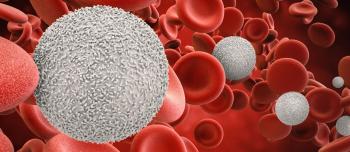On October 10, 2014, the US Food and Drug Administration (FDA) approved the first combination pill to treat patients with genotype 1 chronic hepatitis viral (HCV) infection. The drug, Harvoni®, is a combination of two direct-acting antiviral therapies, ledipasvir (LDV) and sofosbuvir (SOF). LDV is an NS5A inhibitor, a drug that disrupts nonstructural proteins HCV needs to replicate. SOF is a nucleotide analog polymerase inhibitor, which blocks polymerase, an enzyme that provides instructions for making copies of HCV RNA.
Harvoni®, manufactured by Gilead, based in Foster City, CA, is also the first FDA-approved HCV therapy regimen without pegylated interferon (peg-IFN) injections or a daily ribavirin (RBV) oral pill. Previously, the combination Peg-IFN and RBV represented the standard HCV treatment, even though only half of patients cleared the virus and side effects could be debilitating during the typical 48-week regimen.
The effectiveness of Harvoni® was measured in three clinical trials of 1,518 patients: those who were treatment-naïve (not previously treated), those who were treatment-experienced and those who were treatment-experienced and had cirrhosis. Participants were randomly assigned to receive Harvoni® with or without ribavirin. Efficacy was achieved in patients who showed a sustained virological response (SVR) for at least 12 weeks after ending their treatment. SVR signifies that a patient has “cleared” the virus when the viral load is reduced to undetectable levels in the bloodstream. Though not technically a cure--HCV is often not entirely eradicated from the liver--SVR is still the goal for clinicians. Lowering the viral load to undetectable levels decreases HCV’s harmful effects.
In the first trial, on treatment-naive participants, 94% who received Harvoni® for eight weeks and 96% of those who received Harvoni® for 12 weeks achieved SVR. The second trial showed 99% of such participants with and without cirrhosis achieved SVR after 12 weeks. The third trial, on treatment-experienced participants with and without cirrhosis, 94% of those who received Harvoni® for 12 weeks and 99% of those who received it for 24 weeks achieved SVR. In all trials, ribavirin did not increase response rates in the participants. Fatigue and headache were the most commonly reported side effects.
“With the development and approval of new treatments for hepatitis C virus, we are changing the treatment paradigm for Americans living with the disease,” said Edward Cox, MD, MPH, director of the Office of Antimicrobial Products in the FDA’s Center for Drug Evaluation and Research. “Until last year, the only available treatments for hepatitis C virus required administration with interferon and ribavirin. Now, patients and health care professionals have multiple treatment options, including a combination pill to help simplify treatment regimens.”
Source: FDA news release dated October 10, 2014





